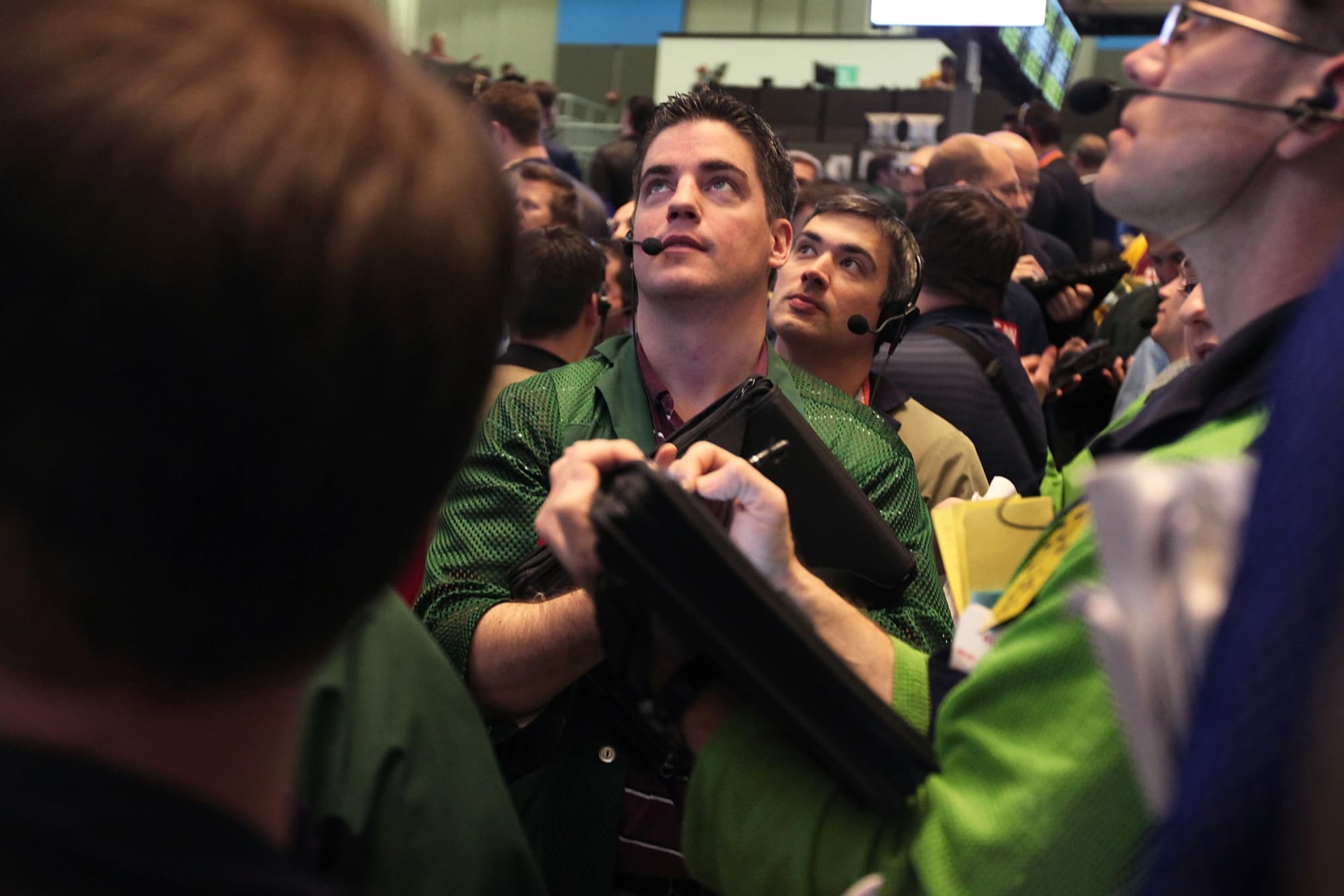This post was originally published on this site

Even as interest rates remain low and investor appetite is strong, the ever-rising high-yield corporate debt levels are continuing to raise concerns on Wall Street.
The latest warning comes from Charles Schwab strategists, who are advising clients to reduce their exposure, or underweight, to a part of the market that will see a record number of maturities over the next five years.
“We think risks are elevated. We are concerned about the level of corporate profits,” said Collin Martin, a fixed income strategist at Schwab who focuses on corporate bonds. “We think too many people are reaching for yield.”
Investors for the past decade-plus have been in a race for yield as the Federal Reserve has kept benchmark rates low and as borrowing costs for corporates, even at the lowest end of the credit spectrum, remain cheap. The ICE BofAML High Yield Master II effective yield is around 5.3%, near the lowest its been for the entire recovery cycle and well off the most recent high near 10% in February 2016.
That has come with default rates that had been extremely low on a historical basis. However, that is changing.
The junk default rate in 2019 rose to 3.3%, the highest level in three years and well above the non-recession norm of 2.4%, according to Fitch Ratings. Those defaults amounted to $38.6 billion, a 32% surge from 2018.
Martin said he is particularly concerned about energy, which had a default rate of 9.5%, well above the 4.4% norm though below the all-time peak of 19.7% in January 2017. Energy is the largest high-yield sector, though its share of the market is diminishing.
The likelihood of systemic risk is still low, Martin said.
“This will be an issuer by issuer problem. It’s more of a long-term risk,” he said.
‘It’s a risk’
The easy availability of refinancing is helping low-rated companies continue to revolve their debt and avoid obligations they might not be able to meet.
Investors don’t seem to mind any of it, continuing to scoop up speculative debt regardless of the credit risks. Covenant protection, or the insurance investors get that borrowers have the ability to pay, was near its lowest levels on record at the end of the 2019, according to Moody’s Investors Service.
“It’s a risk, but no one cares,” Collins said. “People are buying everything.”
Companies are responding in kind, with 2020 already seeing a surge of debt coming to market.
High yield-rated companies already have priced $50 billion in the first five weeks of the year, a sizzling pace as all of 2019 only saw $160 billion in issuance, according to Bank of America Global Research.
Moody’s said speculative-grade bonds maturing over the next five years will total $1.2 trillion, a new record. That’s up 19% from the year-ago period.
Ratings companies have been warning about a rising number of “fallen angels” that could slide from investment-grade debt down to junk. Investors with a lower risk profile might shy away from such debt, creating financing problems for those companies.
Last month, Moody’s also cautioned that 36% of the total bank maturities in the speculative sphere are rated B3 or lower, up from 33% a year ago. That B3 rating is at the bottom of the “highly speculative” ladder and just above the level considered to carry substantial risk.
“A lot of the financial institutions are taking advantage and just refinancing and refinancing,” Collins said.




